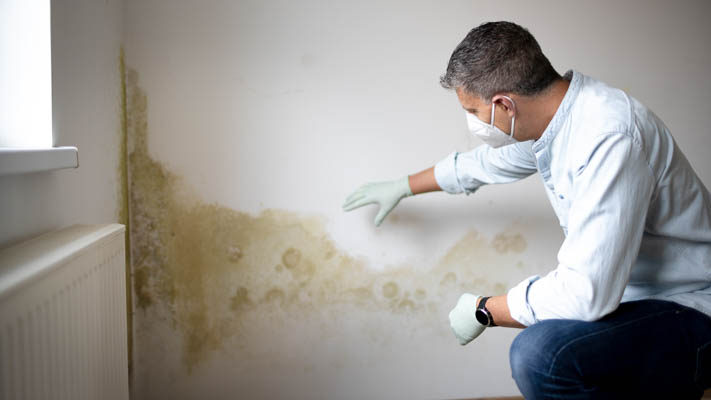What Was the Polybutylene Lawsuit About?
The polybutylene lawsuit stemmed from widespread pipe failures that caused water damage in hundreds of thousands of homes across the country. Though polybutylene was originally marketed as a revolutionary material, many of the systems installed between 1978 and 1995 began to crack, flake, and split without warning.
The issue was traced back to a chemical reaction between the polybutylene material and oxidants like chlorine found in public water supplies. Over time, these oxidants degraded the interior of the pipes, leading to brittleness and leaks. The failures were not just inconvenient; they were expensive, with repair costs often running into thousands of dollars.

In response, a class-action lawsuit against Quest pipes (a brand name of polybutylene), known as Cox v. Shell Oil Co., was filed in 1995 against manufacturers including Shell Oil Company, which had been involved in producing or distributing polybutylene piping.
The lawsuit alleged that the manufacturers knew about the material's shortcomings but continued to sell it. The result was a landmark legal settlement that aimed to compensate affected homeowners for damage caused by these defective pipes. You can read the full ruling here.
When Did the Polybutylene Lawsuit Settlement Expire?
The class-action lawsuit led to a large settlement fund for eligible homeowners. Known as the Cox settlement, it was finalized in 1995 and allowed homeowners to file claims for pipe replacement and water damage repair.
However, the window for filing a claim under the settlement didn't stay open forever. The final deadline to file a claim was 2009. After this date, the settlement officially expired, and homeowners were no longer eligible for reimbursement under the lawsuit, even if their pipes failed after this point.
This deadline passed more than a decade ago. Today, homeowners with these pipes are entirely responsible for replacement costs, and insurance companies may charge higher premiums—or even deny coverage altogether—if polybutylene pipes are still in the home.
If you're just now learning about the polybutylene issue, you're unfortunately no longer eligible for compensation under the original lawsuit. More recent polybutylene class-action lawsuits have been far less successful, making it much harder to file new claims.
Should You Replace Polybutylene Pipes in Your Home?
The polybutylene lawsuit may be over—but the risks aren't. Even though the legal settlement is no longer available, replacing polybutylene pipes is still strongly recommended.
These pipes carry a high risk of sudden failure, especially as they continue to age. A single pipe burst can cause extensive water damage, disrupt daily life, and lead to costly repairs that are often far more expensive than a full home repipe.
There are also other long-term implications. Many insurance companies are wary of insuring homes with polybutylene pipes and may decline coverage or increase premiums. Some real estate agents also report that homes with these pipes are harder to sell or face price reductions during negotiations. In short, polybutylene plumbing can hurt your property's value and safety.
If you're concerned that your home has polybutylene pipes, here are a few key signs to look for:
- Pipes are grey, blue, or black plastic, often with "PB2110" printed on them
- Pipes are visible near the water heater, in crawl spaces, or near the main shut-off valve
- The home was built between 1978 and 1995
If your home's plumbing matches these criteria, contact us for a free consultation with one of our local repipe specialists to discuss your polybutylene repipe options.
Get your free estimate today
With over 75,000 repipes completed, we've perfected our One-Stop Repipe™ for your home.
Get a Free Quote to Replace Polybutylene Pipes in Your Home
Here at Repipe Specialists, we've fully replaced polybutylene plumbing in homes across the country using both American-made type-L copper piping and Uponor PEX-A tubing. We continually receive positive feedback from customers about their overall home repipe experiences. We often exceed their expectations in the following areas:
- Speed: Our repipe crews typically complete a repipe in a day, returning on another day for wall patching.
- Convenience: Through our One-Stop Repipe™ Process, we handle everything from permits, to wall patching, to inspections.
- Cleanliness: Our crews are trained to protect your home while working (we cover all surfaces with protective sheeting), and to clean up fully at the end of each day.
- Peace of Mind: Repipe Specialists is a fully licensed plumber in every state we operate in, and we back all of our repipes with a lifetime warranty.
- Financing programs: To help take the sting out of unplanned repipe expenses, we offer several financing programs.
- Price: As a specialist that performs hundreds of repipes a week, we can deliver high quality repipes at a lower cost vs generalist plumbers. A complete repipe typically ranges from $4,500 to $15,000, depending on the size of your home. We have an article that covers repipe cost factors in detail.
Schedule a free in-home consult, and one of our local repipe consultants will explain all your repipe options and provide you with a written, fixed-price quote. Repipe your polybutylene pipes now.

